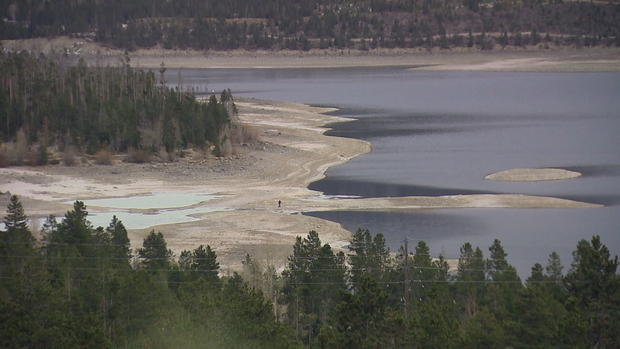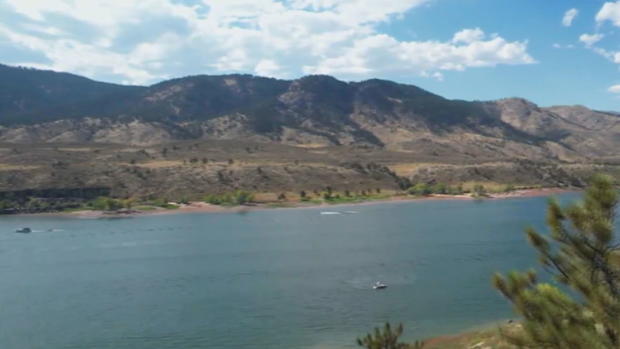Colorado Water Suppliers Seeing 'Traditional Patterns' Change Each Year
DENVER (CBS4) - A drive past Dillon Reservoir this dry fall shows the lake levels low enough to make people wonder. It's a common mistake. The levels are always dropped by Denver Water ahead of the winter snowpack.
The deeper parts of the reservoir still hold a lot. The reservoir's capacity is 250,000 acre feet, the equivalent of a foot of water over an acre, which is about the size of a football field.
"Our reservoir storage is about where it usually is this time of year," said Denver Water spokesman Todd Hartman.
Water supply experts are looking longer and things look troubling in some ways.
"All of our water supply planning factors in climate change," said Greeley Water and Sewer's Director of Water Resources, Adam Jokerst. "It's such a driver of the water supply that we're going to get in any given year into the future."
That means planning to deal with the variability as much as anything.
"We're seeing snowmelt occur earlier in the spring. This year we saw snowpack starting to build later in the fall. These are all the kinds of changes that are predicted from climate change models, and we're starting to see them now," said Jokerst.
Colorado's warming climate, two degrees over the past 30 years, means more variability.
"The predictability. The year-to-year kind of traditional patterns that I think we saw for a lot of the 20th century are changing and every year is a little less predictable," said Hartman.
In northern Colorado they know things could change for the better, even with the late initial snowfall.
"We are sitting on about 70% snowpack, and the water basins that we get our drinking water from," explained Jokerst, who works with other suppliers like Fort Collins. "We're generally okay largely because our reservoirs are pretty full from last year."
The monsoon season of the summer was a decent one that helped, but winds and dry weather have led to devastating wildland fires and runoff that tainted supplies with ash.
"We were unable to treat water from our primary water supply base in progress 40 days last year because rainfall over the burn area degraded the water quality and we couldn't treat it."
They drew from other shared sources, which could happen more in the future.
"We plan 50 years into the future. So climate change has become a big part of our thought process and our planning process," said Hartman. "It's true that we're probably going to experience longer and more intensive droughts. So we need to be more prepared for that. One key to prepare for that is to build storage."
Part of that plan is the expansion of Gross Reservoir, which has been opposed by some in the area of southern Boulder County, concerned among other things about years of construction. Water systems all along the Front Range know there is increasing population to deal with along with changing climate and potentially fewer opportunities to gather and hold water they will need.
"Spring runoff is coming sooner. So we have to be prepared to capture that water sooner," said Hartman.





